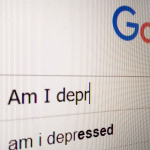
News • Psychology
Stress makes it harder for us to sense new dangers
Being under stress diminishes our abilities to predict new dangers that we face, a team of psychology researchers finds. Its work runs counter to the conventional view that stress enhances our ability to detect and adjust to these changing sources of threat. “Stress does not always increase perceptions of danger in the environment, as is often assumed,” explains Candace Raio, a postdoctoral…
























